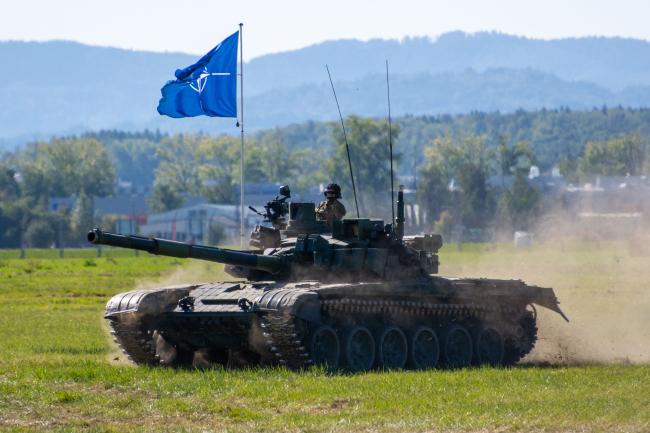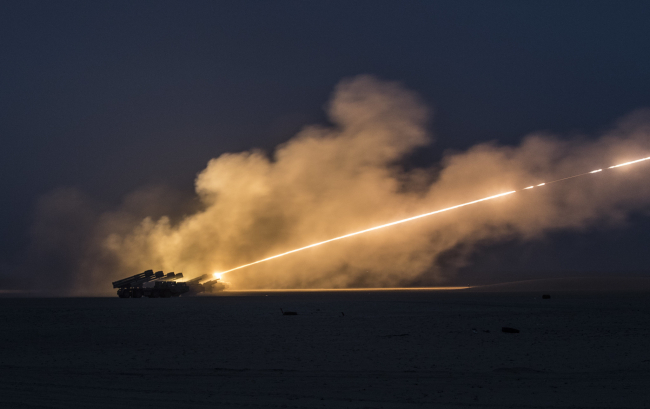A Transatlantic Defense Industrial Base? Two Contrasting Views

The evolving landscape of global defense cooperation has brought the transatlantic relationship between the United States (US) and Europe into sharp focus. As geopolitical tensions rise and the threat environment becomes more complex, the question of how Europe can best ensure its security while navigating its relationship with the United States has become paramount. This double feature report offers two contrasting views on the dynamics of US-Europe defense industrial relations, highlighting the challenges and opportunities that lie ahead for both parties.

The evolving landscape of global defense cooperation has brought the transatlantic relationship between the United States (US) and Europe into sharp focus. As geopolitical tensions rise and the threat environment becomes more complex, the question of how Europe can best ensure its security while navigating its relationship with the United States has become paramount. This double feature report offers two contrasting views on the dynamics of US-Europe defense industrial relations, highlighting the challenges and opportunities that lie ahead for both parties.
The first text, authored by Jonathan Caverley and Ethan Kapstein, presents a perspective that underscores the limitations of European strategic autonomy in defense. They argue that despite increased defense spending and initiatives like the Draghi Report, Europe remains heavily reliant on the United States for advanced military technology and industrial capabilities. They suggest that Europe should accept a junior partner status within the transatlantic alliance, leveraging US technological superiority to bolster its own defense capabilities. This approach, they contend, would allow Europe to benefit from the most advanced defense systems while acknowledging the economic and industrial realities that constrain its ability to achieve full autonomy.
In the second text, Élie Tenenbaum and Léo Péria-Peigné challenge the overly pessimistic narratives surrounding the European defense industry. They highlight the successes and technological advancements of European defense firms, arguing that Europe has the potential to be a significant player in the global defense market. Tenenbaum and Péria-Peigné question the reliability of US defense supplies, citing concerns over production delays, operational limitations, and stringent export controls. They advocate for a more balanced transatlantic partnership, where Europe can assert its industrial capabilities and strategic autonomy while still cooperating with the United States.
Together, these two texts, respectively written by American and European researchers, weigh on an increasingly heightened debate surrounding transatlantic defense cooperation. They explore the tensions between the need for European strategic autonomy and the benefits of leveraging US technological and industrial strengths. As Europe grapples with the challenges of ensuring its security in an increasingly uncertain world, these perspectives offer valuable insights into the future of defense industrial relations between the United States and Europe.

Available in:
Themes and regions
ISBN / ISSN
Share
Download the full analysis
This page contains only a summary of our work. If you would like to have access to all the information from our research on the subject, you can download the full version in PDF format.
A Transatlantic Defense Industrial Base? Two Contrasting Views
Related centers and programs
Discover our other research centers and programsFind out more
Discover all our analysesThe Franco-German Brigade and the Revival of European Defense
One thing has been clear since Donald Trump's return to the White House: the very existence of the European unification project is threatened. Unless it develops a sovereign defense policy to counter the war in Ukraine and the weakening of American security guarantees, the European Union will continue to see its internal cohesion and external attractiveness wane.
Taking the Pulse: Can Europeans Build Their Independent Extended Nuclear Deterrent?
Confronted with a U.S. disengagement and the Russian threat, Europeans are reconsidering their stance on nuclear deterrence. Given the capabilities of the French and British arsenals, can Europe develop an independent nuclear deterrent?

RAMSES 2024. A World to Be Remade
For its 42nd edition, RAMSES 2024 identifies three major challenges for 2024.
Deep Precision Strikes: A New Tool for Strategic Competition?
Reaching deep into the enemy’s system to weaken it and facilitate the achievement of operational or strategic objectives is a key goal for armed forces. What capabilities are required to conduct deep strikes in the dual context of high-intensity conflict and strengthened enemy defenses?











